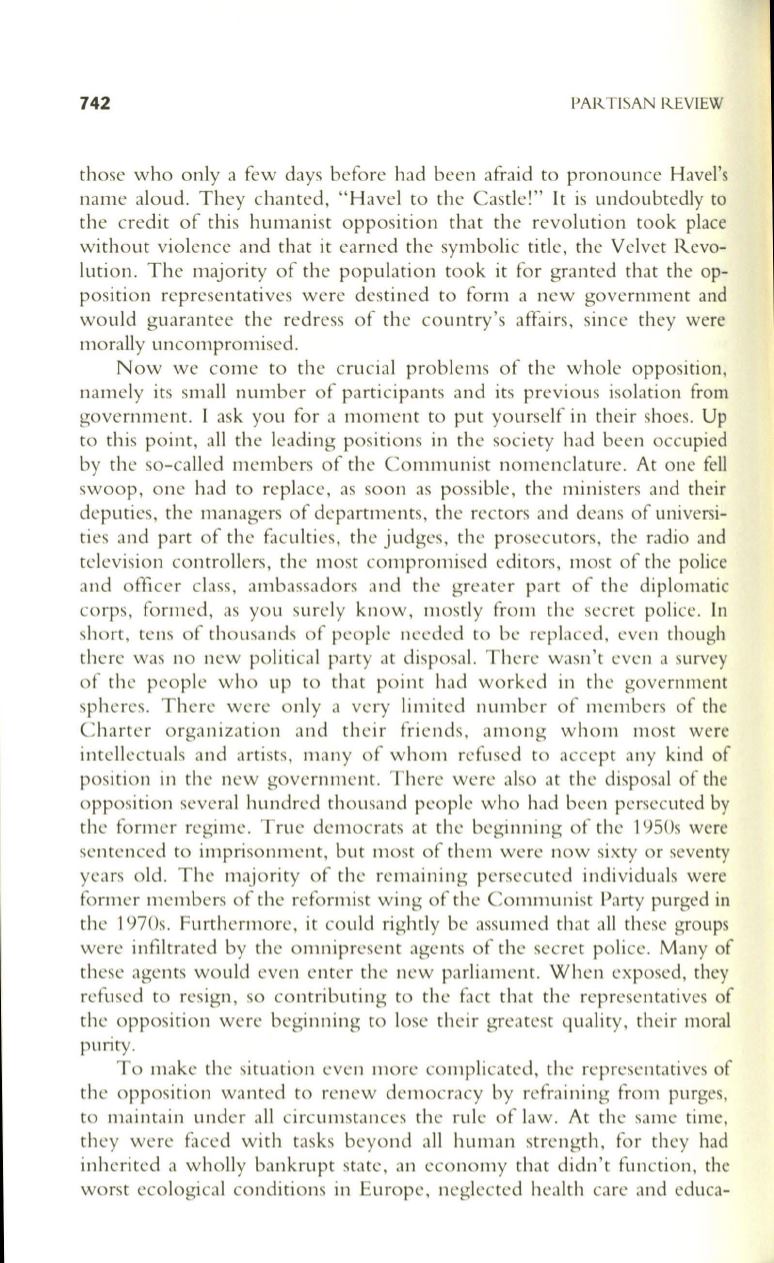
742
PAl"tTISAN REVIEW
those who only a few days before had been afraid to pronounce Havel's
name aloud. They chanted, "Havel to the Castle!" It is undoubtedly to
the credit of this humanist opposition that the revolution took place
without violence and that it earned the symbolic title, the Velvet Revo–
lution. The majority of the population took it for granted that the op–
posItIon representatIves were destined to form a new government and
would guarantee the redress of the country's affairs, since they were
morally uncompromised.
Now we come to the crucial problems of the whole opposition,
namely its small number of participants and its previous isolation from
government. I ask you for a moment to put yourself in their shoes. Up
to this point, all the leading positions in the society had been occupied
by the so-called members of the Communist nomenclature. At one fell
swoop, one had to replace, as soon as possible, the ministers and their
deputies, the managers of departments, the rectors and deans of universi–
ties and part of the faculties, the judges, the prosecutors, the radio and
television controllers, the most compromised editors, most of the police
and officer class, ambassadors and the greater part of the diplomatic
corps, formed, as you surely know, mostly from the secret police.
In
short, tens of thousands of people needed to be replaced, even though
there was no new political party at disposal. There wasn't even a survey
of the people who up to that point had worked in the government
spheres. There were only a very limited number of members of the
Charter organization and their friends, among whom most were
intellectuals and artists, many of whom refused to accept any kind of
position in the new government. There were also at the disposal of the
opposition several hundred thousand people who had been persecuted by
the former regime. True democrats at the beginning of the 1950s were
sentenced to imprisonment, but most of them were now sixty or seventy
years old. The majority of the remaining persecuted individuals were
former members of the reformist wing of the Communist Party purged in
the 1970s. Furthermore, it could rightly be assumed that all these groups
were infiltrated by the omnipresent agents of the secret police. Many of
these agents would even enter the new parliament. When exposed, they
refused to resign, so contributing to the fact that the representatives of
the opposition were beginning to lose their greatest quality, their moral
purity.
To make the situation even more complicated, the representatives of
the opposition wanted to renew democracy by refraining from purges,
to maintain under all circumstances the rule of law. At the same time,
they were faced with tasks beyond all human strength, for they had
inherited a wholly bankrupt state, an economy that didn't function, the
worst ecological conditions in Europe, neglected health care and educa-


